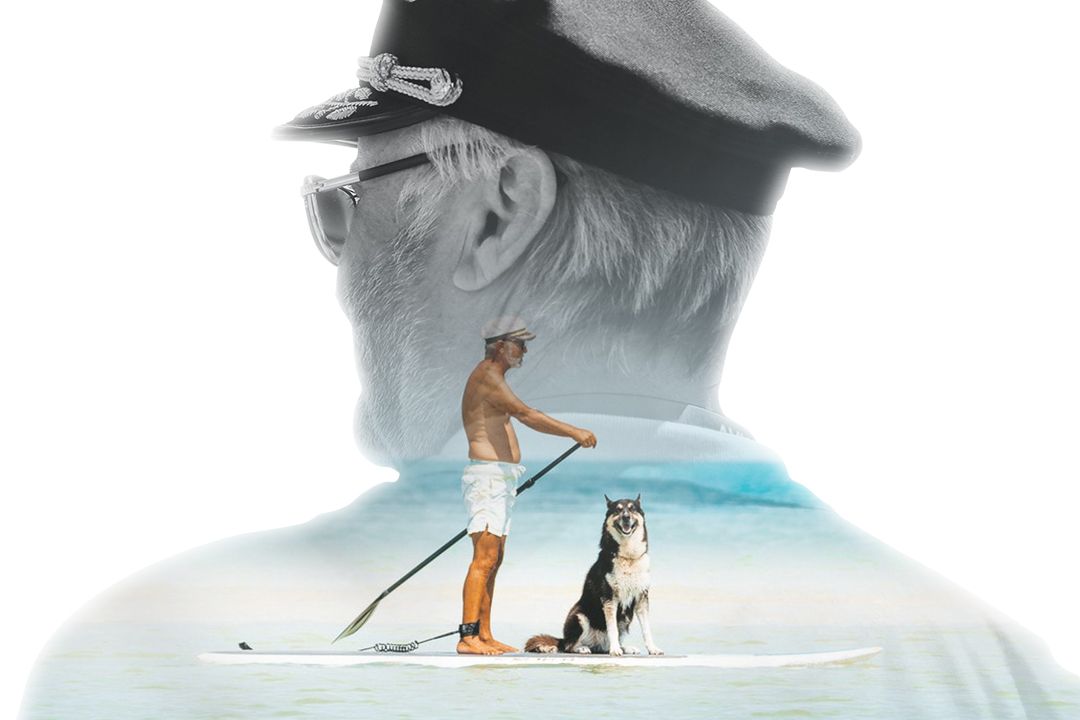A Galaxy Far, far, away...

A Galaxy Far, far, away...

Who's the Captain of This Ship?
Sophia stood at the edge of the once-vibrant town, her gaze stretching over the fields that rolled away into the distance, now swallowed by encroaching shadows of the giant city. The streets where she once played as a child were quiet, the laughter and lifeblood of the community having trickled away to the promise of prosperity in the urban sprawl. It was a scene of quiet devastation, a silent testament to a draining exodus.
Long, long ago the country bore the country-town and nourished it with her best blood. Now the giant city sucks the country dry, insatiably and incessantly demanding and devouring fresh streams of men, till it wearies and dies in the midst of an almost uninhabited waste of country.
— Oswald Spengler (1880-1936)
Her grandfather, Alexander, had often spoken of the cyclic nature of life, of the Möbius strip he envisioned life to be—an endless loop where the old and the new would continuously meet. Yet, as Sophia observed the near-empty streets and overgrown paths, she wondered if some cycles were destined to break, their continuities lost to the insatiable appetites of distant metropolises.
The local café, once the heart of their small community, stood empty, the laughter and stories that once filled it now faint echoes. Sophia could almost hear the vibrant discussions that her grandfather used to have with his friends, debating over cups of steaming coffee, their voices steeped in nostalgia and a stubborn hope for revival.
Alexander himself had resisted the pull of the city. He wore his captain's cap with defiant pride, symbolizing his belief in navigating through life's tumultuous waters without yielding to the siren calls of urban giants. He had been the captain of his own fate, steadfastly believing that the nourishment for a fulfilling life lay in the roots one had grown, not in the seductive, fast-paced beats of the city.
Sophia's reflections were interrupted by the distant sound of a train, another load of hopeful souls departing for the city. With a sigh, she turned back towards her grandfather's house, the walls filled with maritime memorabilia, each telling stories of adventures at sea and life lessons learned. Alexander might have been the town's informal philosopher, often musing about the ebb and flow of human existence much like the tides he once sailed.
Inside, she traced her fingers over the maps and charts that lined the study walls. Each was a testament to her grandfather's literal and metaphorical journeys and his enduring love for the place he called home. Despite the town's dwindling population, he had remained, a steadfast beacon in the fog of change.
Sophia settled into the old, worn chair by the window, a stack of her grandfather's journals by her side. As she flipped through the pages, his words seemed to echo around her, a reminder of the resilience and continuity of the human spirit. In her mind's eye, she saw Alexander standing at the helm of his ship, the captain of his soul, undeterred by life's shifting currents.
His love for the sea was paralleled only by his love for the town, each as integral to his identity as the other. Sophia realized that her return was not just a visit, but a reclaiming of her roots, a necessary step in understanding the depth of her grandfather's lessons. In the quiet of the evening, as the sun dipped below the horizon, she felt a profound connection to the cycles of life and the wisdom that flowed through her family's history.
Just like Alexander, Sophia decided she would navigate her future with an awareness of where she had come from, steering through life with an appreciation for both the journeys undertaken and the harbours that provide refuge along the way. She knew this was her heritage and her path forward, intertwined like the intricate loops of a Möbius strip, continuous and infinite.
The town might be fading, but in Sophia's heart, sparked by her grandfather's writings and memories, there was a burgeoning hope, a plan to breathe life back into this place. She imagined the streets bustling with new energy, a revival of the old fueled by the wisdom of the past, a Möbius strip of rebirth and legacy. With a smile, Sophia began to draft her plans, her spirit alight with the possibility of weaving new stories into the fabric of her beloved town.
Continuing from where we left off, as Sophia poured over her grandfather’s journals, finding solace and inspiration in his words, she felt an increasingly strong connection to her roots and the past lives that had ebbed and flowed through this town. Her thoughts often wandered to her youthful days, bright and vibrant, yet bound by the landscape she was now determined to revive.
Oh as I was young and easy in the mercy of his means, Time held me green and dying Though I sang in my chains like the sea.
— Dylan Thomas (1914-1953)
Sophia recalled her youthful exuberance, the ease with which she embraced each day under the protective gaze of her family and the town's tight-knit community. Those days had been marked by a seemingly boundless freedom, yet paradoxically, she had been tethered tightly by invisible chains—those of tradition, expectation, and the unspoken obligation to remain within the comforting confines of her known world. Like the sea, her spirit had surged against these bonds, singing with a restless energy, yearning for something beyond, yet unsure of what lay out there.
As she sat in her grandfather's study, the sounds of the sea seemed to whisper through the pages, each memory a wave crashing against the shore of her consciousness. Alexander had lived a life anchored by the sea’s rhythms and yet had traveled far beyond the horizon. His stories, filled with distant lands and profound encounters, had once sparked Sophia's imagination, sowing seeds of a dream that she might one day chart her own course.
Yet, life had a way of recalibrating dreams. Sophia's journey had taken her to the city for education, work, and the promise of a different life. With its pulsating pace and towering ambitions, the city had embraced her, yet, in its embrace, she had found herself longing for the open skies and the gentle pace of her seaside town. It was in the city’s relentless clasp that she had truly understood the nature of the chains that bound her—not just those of her small-town beginnings but also the gilded chains of city life, each promising freedom while delivering confinement.
Returning to the town, now under the shadow of the city's insatiable sprawl, Sophia saw with fresh eyes the dual nature of freedom and captivity. The town offered a different kind of chain woven with threads of memory, legacy, and a deep-seated sense of belonging. She now chose these chains, recognizing their power to anchor and sustain.
In the following months, Sophia began to channel her energies into reviving the town. She initiated projects to restore the old café, turning it into a community hub and a local history museum, inviting old residents and curious city dwellers. She organized festivals that celebrated the town's maritime heritage, drawing on the stories her grandfather had left behind, each event a stanza in the song of her sea-bound chains.
With every effort, the town responded. New life trickled back into the empty streets, drawn by the charm of nostalgia and the allure of a slower, more reflective pace of life. Sophia’s initiatives sparked interest in artisanal crafts, sustainable living, and eco-tourism, turning the town into a model of rural resurgence, a beacon for those weary of the city's ravenous demands.
As the town flourished, so did Sophia. She found herself no longer the young girl singing in her chains, but a woman who orchestrated the melody of her life, harmonizing the old with the new. In her heart, the sea’s eternal song continued to play, a reminder of the unbreakable bond between her spirit and the waves that danced upon the shore of her childhood home.
Through her story, we see the transformation of a person and a place, both bound and freed by the deep currents of history and choice. Sophia’s narrative is of return and renewal, a symphony of life’s continuous and often surprising harmonies.
The planksip Writers' Cooperative is proud to sponsor an exciting article rewriting competition where you can win part of over $750,000 in available prize money.
Figures of Speech Collection Personified
Our editorial instructions for your contest submission are simple: incorporate the quotes and imagery from the above article into your submission.
What emerges is entirely up to you!
Winners receive $500 per winning entry multiplied by the article's featured quotes. Our largest prize is $8,000 for rewriting the following article;
At planksip, we believe in changing the way people engage—at least, that's the Idea (ἰδέα). By becoming a member of our thought-provoking community, you'll have the chance to win incredible prizes and access our extensive network of media outlets, which will amplify your voice as a thought leader. Your membership truly matters!
